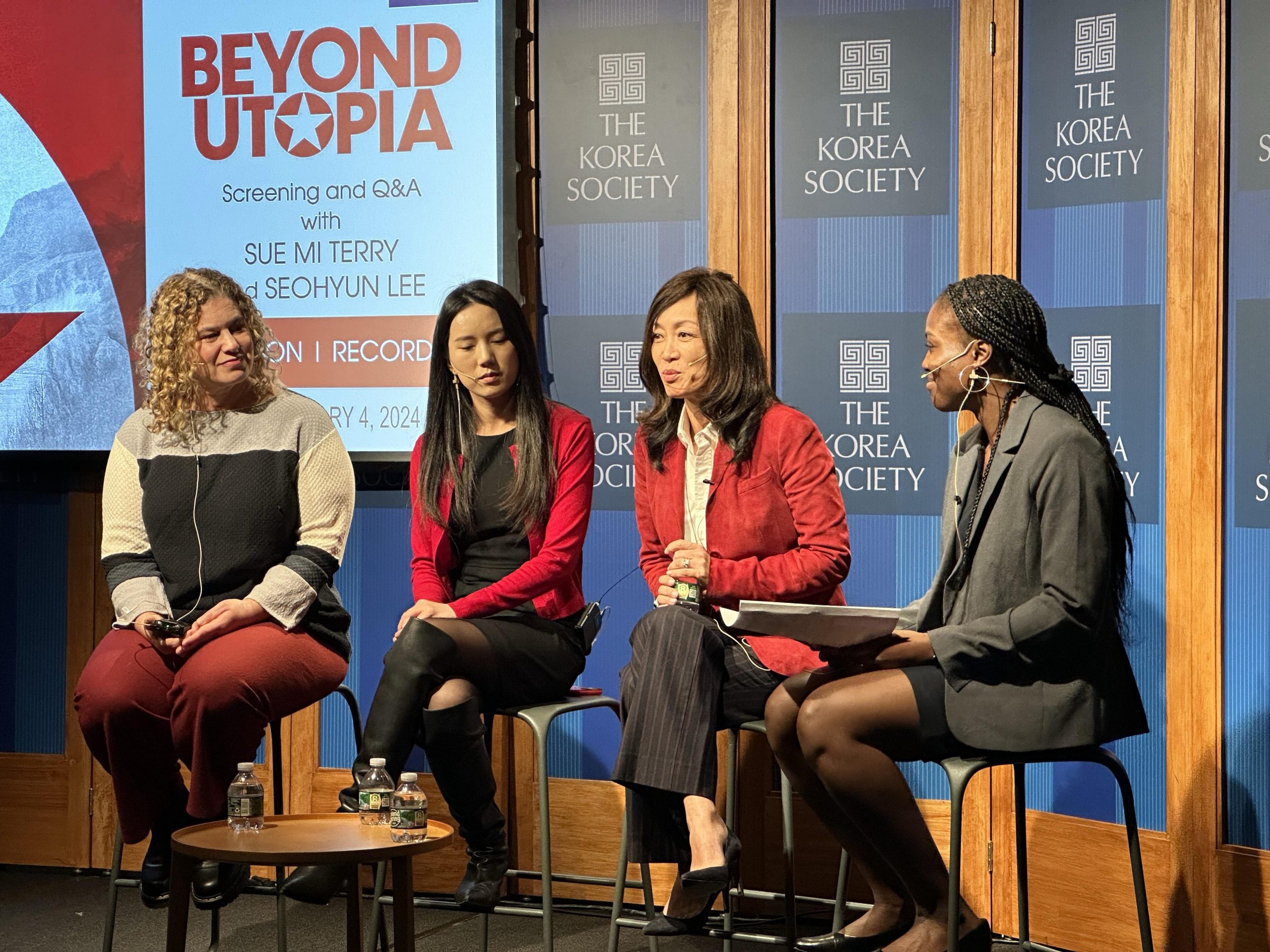“Beyond Utopia,” a documentary film that captures a family’s desperate and dangerous escape from North Korea, was nominated for the annual prime-time Emmy Awards on July 17.
The news came a day after Sue Mi Terry, one of the film’s three producers and a Korean-American foreign policy specialist who previously worked for the CIA and the White House National Security Council (NSC), was indicted on U.S. charges for allegedly acting as an agent for the South Korean government.
The Academy of Television Arts & Sciences announced the full list of nominees for this year’s Emmy Awards, with “Beyond Utopia” being one of three nominees for Exceptional Merit in Documentary Filmmaking.
The film co-produced by Rachel Cohen, Jana Edelbaum, and Terry, and directed by Madeleine Gavin, is one of the year’s most acclaimed documentaries, winning an audience prize after its January premiere at the Sundance Film Festival. It earned a spot among the 15 shortlisted titles for consideration in the documentary feature Oscar race.

The film was screened at the U.S. State Department earlier this year, a rare occurrence. At the time, the department released a statement saying, “This screening is intended to draw international attention to and encourage increased action by the international community to address one of the most protracted human rights crises in the world.” Terry participated in a Q&A session following the screening.
The U.S. Public Broadcasting Service (PBS) also aired the documentary nationwide as well. PBS described the film as follows: “They grew up believing their land was paradise. Now, they risk everything to escape it. In an unforgettable documentary, follow families on a treacherous journey to defect from their homeland of North Korea, as the threat of severe punishment and possible execution looms over their passage, revealing a world many have never seen.”
[Ex-CIA and NSC official Sue Mi Terry indicted as ‘unregistered agent’ for South Korea]
Meanwhile, Terry was indicted on charges for allegedly working as an agent for the South Korean government in exchange for luxury goods and other gifts on July 16. The indictment charges Terry with failing to register under the Foreign Agents Registration Act (FARA), and conspiring to violate that law.
Terry allegedly “subverted foreign agent registration law in order to provide South Korean intelligence officers with access, information, and advocacy,” U.S. Attorney Damian Williams said on July 17 in a Justice Department press release.
“Terry allegedly sold out her positions and influence to the South Korean government in return for luxury handbags, expensive meals, and thousands of dollars of funding for her public policy program. The charges brought should send a clear message to those in public policy who may be tempted to sell their expertise to a foreign government to think twice and ensure you are in accordance with the law.”
When asked if the U.S. government consulted with the South Korean government ahead of Terry’s indictment, Matthew Miller, the spokesperson for the U.S. Department of State, declined to answer during the press briefing on July 17. “I’m not going to get into a comment on that at all when it gets to anything specific to this matter,” he said. “It’s not appropriate for me to comment.”
However, he laid out the general background of the existing law. “I will say more generally that the reason the FARA exists is so that those of us in government as well as people in the public as well, but speaking on behalf of the State Department, those of us in government know when we engage with people who come in to meet with us, who they’re representing, whether they’re representing themselves or whether they’re representing a foreign government,” he said. “That’s why that law was passed. That’s why the Justice Department vigorously enforces it, and it’s of course, appropriate for them to do so.”
BY YOUNGNAM KIM [kim.youngnam@koreadaily.com]




